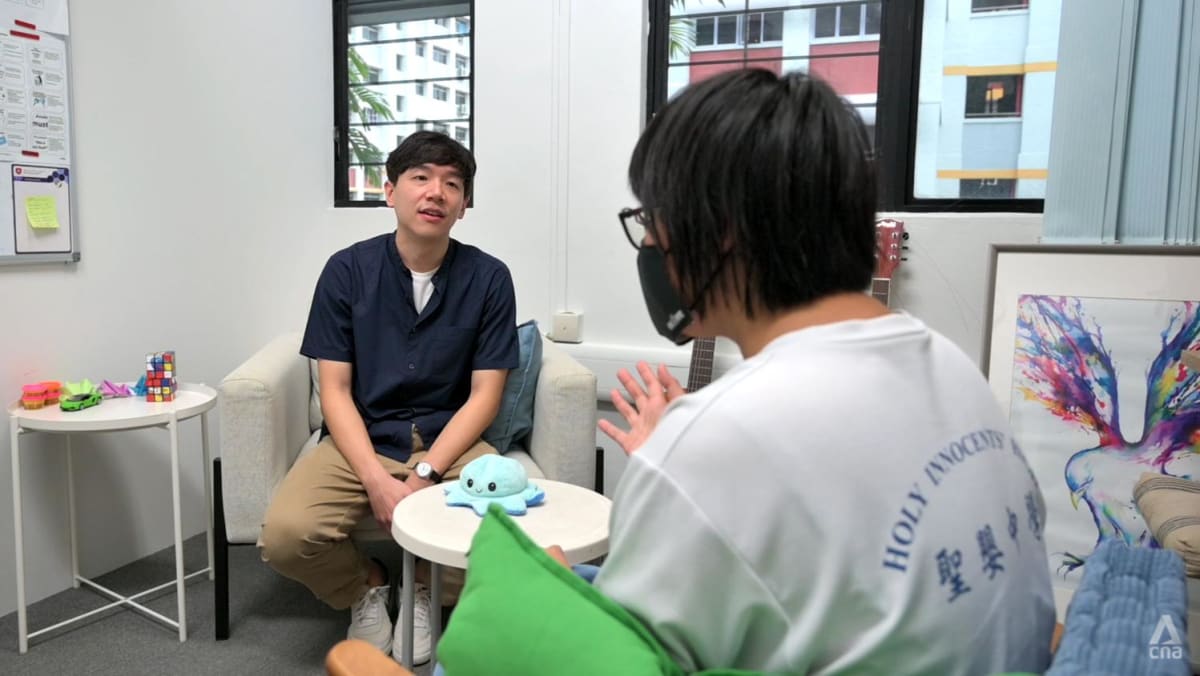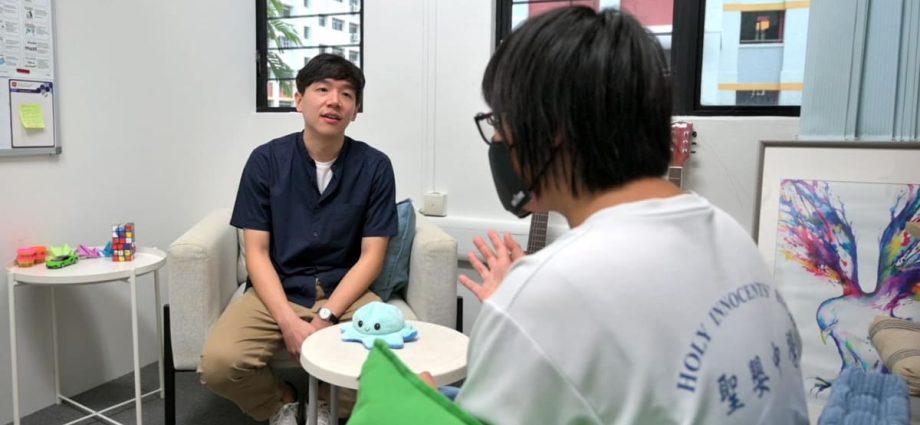
Later, Mr Seng shared that some students come to him hoping that he will offer them a direct solution to their problems.
“I will usually say that this is something we can work on together, through our conversations we can understand the problem a bit more, and then we can explore or work on some ways we can approach this problem,” he said.
“So in a way, I’ll be telling them that I’m not here to solve the problems, but we are here to work together about it.”
Together, they will examine the facts of the problem, how they think about the problem, how they feel about the problem and so on, he added.
One thing that comes up more often in recent years are problems related to the online space and social media, Mr Seng shared.
If a student is being bullied online, he will first offer some practical solutions, like advising them to use social media less or avoid looking at hateful comments.
Then if they are open to exploring the topic more, he might delve deeper into the problem with them – why they are so affected by comments made online, how that affects how they view themselves, how they feel about themselves and so on.
“The ideal is to get them to a place where their self-esteem or their image of themselves does not rely on what other people say about them, especially online.”
For example, he might work with them to identify some of the negative thoughts that are triggered by seeing negative comments about themselves. Seeing comments about how other people are not good-looking may trigger negative thoughts like “I’m ugly”, he explained.
“We will examine those thoughts, and examine whether those thoughts are necessarily true, whether those thoughts have any actual evidence, and if not, how can they dispute the thought.
“The angle of the strategy is such that if they can understand and are more aware of these negative thoughts that come up, then they can manage it better and see that their thoughts are not necessarily reflective of themselves,” he added.
Not every student is as open to counselling as the one we met. Some still have the impression that counselling is only for students who are troubled or weak, Mr Seng said.
“The classic example is if their classmates know that they’re going for counselling, then they’ll ask things like ‘Aiyo, why you going for counselling, is it you got problem? Are you depressed?’” he said.
This prevents students who are a bit more sensitive to feeling judged by others from seeking help because they want to avoid the teasing, he added.
But mental health literacy is improving, and he also meets students who love going for counselling and push their friends to do the same if they need help, said Mr Seng, adding that many schools are focusing on building peer support.

